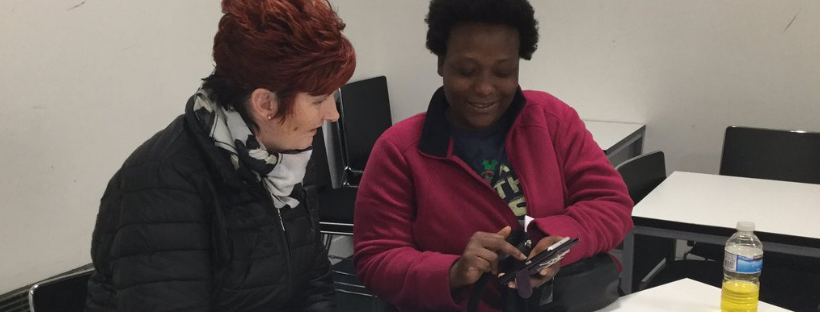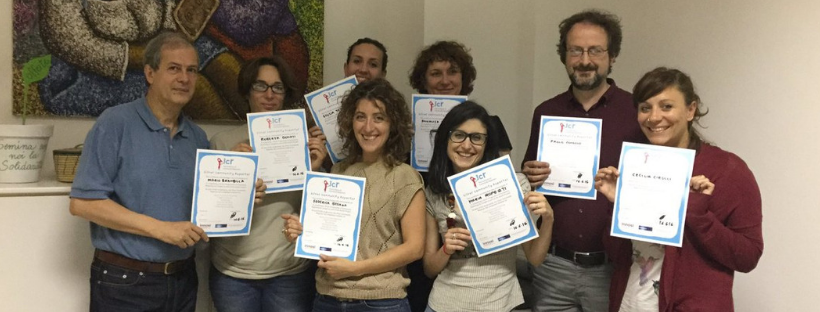The second annual Institute of Community Reporters (ICR) conference
6th – 7th October 2020
We’ve all heard of DIY, right? Well, why do things by yourself when you can do it with others? This year’s Institute of Community Reporters annual conference is celebrating the power of collaboration and we’d love you to join us.
2020 has been quite a year, and throughout the whole COVID-19 pandemic, we have really seen how important our connections with others are and what good can come when people truly start to work together towards common goals. In the spirit of this year’s theme, People’s Voice Media will be working with a range of people and organisations to deliver a jam-packed couple of days of talks, workshops and discussions on the concept of collaboration. All events will be held online.
On the 6th and 7th October, different speakers, facilitators and change-makers will be exploring:
- The different practical approaches that people have used to bring about positive change
- The values and ethics of collaboration
- The challenges and barriers to working with others in equitable and meaningful ways
- And much more!
We’re looking for local residents, Community Reporters, grassroots change-makers, community workers, researchers, public service workers, policy makers, artists and creatives, health and social care providers, philosophers and educators and trainers to attend these and contribute their experiences and ideas to the conversations on the day. We hope to create a dialogue of different perspectives, challenge and provoke one another’s thinking, and sow the seeds of new connections between people.
CONFERENCE PROGRAMME AND REGISTRATION DETAILS
Tuesday 6th October 2020
#COVIDConversations / Online Event / 10:30pm – 12:00pm
Members of the Community Reporting movement have been gathering stories from across Europe of people’s experiences during the COVID-19 crisis. With a focus on connecting with people who are often the least resourced and less likely to be in positions of power, these stories represent everyday experiences of communities across Europe. It is important that these voices – those that are often unheard – are part of this on-going narrative and involved as active actors in rebuilding our future. Join Isaac Samuels and Sally Percival from the Community Reporter network to listen to some of these stories and explore what we can learn from them! REGISTER HERE.
Re-humanising the system / Online Event / 1:30pm – 3:30pm
People’s Voice Media works across the UK and Europe with people to gather stories about how people experience the world. These stories have shown us that we need to ‘rehumanise’ services and put heart-led practice at the centre. We must step out from behind the spreadsheet and connect with others at an emotional level in order to move forward.
As part of this event we will be launching a policy briefing about the rehumanisation of services that draws on the stories with have gathered as part of the CoSIE public service innovation project, through our partnership with NCAG in the health and social care sector and our collaboration with Ideas Alliance on experiences of poverty in Dudley. Hayley Trowbridge, from People’s Voice Media, will share with you some of the stories that have informed our thinking and there’ll be an opportunity for you to explore with others how you can use the learnings from the stories and recommendations in the briefing in your own context. REGISTER HERE.
Collaboration Ideas Jam / Online Event / 5:30pm – 7:00pm
We’ve invited people with passion, energy and great ideas to deliver 10-minute talks on the topic of collaboration – this could be a personal experience of working collaboratively, dilemmas that have occurred, radical re-thinkings of what we mean by collaboration, tools, techniques and practices for collaboration and much more. Cat Duncan-Rees from Curators of Change will facilitate the ideas jam and we want people with their own ideas to share, who are passionate about this topic and can be honest and open in the post-talks discussions to attend. We are interested in exploring the good, the bad and the ugly sides of collaboration – Join us for these fiery talks and a lively discussion. REGISTER HERE.
Wednesday 7th October 2020
Where next for co-creating public services? Policy Seminar / Online Event / 10:30am – 12:00pm
Over the last 3 years, the CoSIE project has been investigating co-creation in public services across Europe, using applied research methods. There are public service pilots in 9 countries working with different services including social care, housing, and economic development. They have explored various tools and techniques for co-creation, examined how co-creation can lead to innovation, investigated the power dynamics involved in such collaborations and much more. This policy seminar will explore the latest ideas from CoSIE, illustrated by lived experience stories from people involved in these co-creation processes. It will foreground in particular co-creation as an approach based on assets and capabilities. In the UK co-creation is perhaps most commonly associated with social care, but in this session we will explore how these ideas can take root in different services including criminal justice (the topic of the UK CoSIE pilot), homelessness and supporting people with chronic health conditions. Challenges such as managing risk, resourcing, staffing, evaluation and scaling up co-creation will be considered. The session will be facilitated by Christopher Fox and Susan Baines. There will be opportunities for the audience to interact and discuss ideas about the future of co-creation with our panel members. REGISTER HERE.
Digital Collaborations / Online Event / 1:00pm – 2:30pm
Join Sarah Henderson from the People’s Voice Media team and partners from the European project – Co-Engage – for an online knowledge exchange about different digital and online methods and tools that supports collaboration and civic engagement. The session will be a mixture of case study presentations with inside tips and know-how, coupled with meaningful discussion amongst peers that looks at how technology can be used to connect us, but also what are its limitations? REGISTER HERE.




